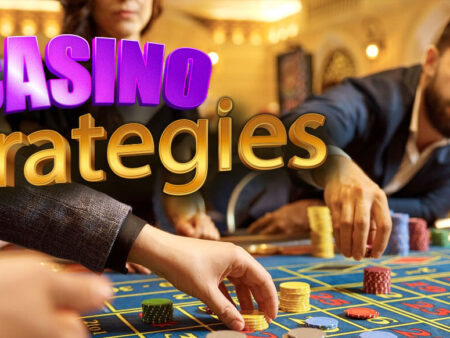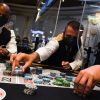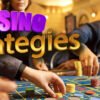Bristol, United Kingdom, The study, conducted by the University of Bristol and published today in the Journal of Gambling Studies, showed that regular male gamblers were the most likely to gamble online during the UK public lockout. Game habits reported.
While overall both men and women gambled less frequently during the lockdown, in part due to the closure of betting shops, some forms of gambling have increased. The results show that although many forms of gambling have been restricted, a minority of regular gamblers have increased their online wagering and wagering significantly. As with so many of the effects of the pandemic, inequalities have increased and vulnerable groups are the hardest hit. Previously, similar questions about pre-pandemic gambling were asked in the popular studies of children age 90, also known as the Avon Longitudinal Study of Parents and Children (ALSPAC).
More than 2,600 people responded, and the results showed that men were three times more likely to play regularly during the block more than once a week compared to women. Heavy drinking, defined as more than six units per session (equivalent to more than three pints of beer) at least once a week, correlated strongly with regular gambling for both men and women.
These trends are likely to be much broader in reality, as the majority (70%) of the foreclosure survey respondents were female. From smart advertising it’s still there. Children are also victims of this advertising, especially for esports, on social networks and could get stuck in addictive habits from a young age. In this growing industry, stricter regulations are needed to protect ignorant consumers.
The study is based on other evidence, including a Covid-19 YouGov follow-up study, which found that regular players discovered new online options during a lockout. Data from the Gaming Operations Commission of the UK’s largest gaming operators also showed higher revenues during the suspension of online gaming, particularly in the sports sector, which was very popular with the suspension of traditional betting.
A previous study by the University of Bristol in the Journal of Public Policy & Marketing showed that children were particularly interested in advertising esport gaming on social media. Alison Claire, Gamble Aware director of research, information and knowledge, said, “We know that gambling has become a part of the daily lives of vulnerable children, adolescents and adults, and this research provides further insights into the effects of the COVID-19 and that lockout.” Does. About gambling habits for teens.
GambleAware is committed to ensuring that anyone involved in gambling has access to the information and advice they need. The stigma of all organizations, including national health services and charities Reducing and assistance and support. Was provided by the National Gambling Treatment Service.
Children in the 90s to about 90s is a long-term health research project called the Avon Longitudinal Study of Parents and Children (ALSPAC), which recruited more than 14,000 pregnant women in 1991 and 1992 from their parents Provides detailed health monitoring and development. , His children and now his grandchildren. Core funding is received from the Medical Research Council, the Wellcome Trust and the University of Bristol.
In a Lockdown, Craig Walding, 36, considered suicide after drowning in heavy debt after becoming addicted to online gambling during the lockout because his addiction was “out of control”. I lost 20,000 pounds overnight.:
As a fan of the game, Craig Walding did not see anything wrong with placing random bets while watching football on weekends.
After all, all of his friends did the same, and although they rarely made a profit, it was kind of funny.
But a few years later, the likely temblor turned into an online gambling addiction that resulted in the suicide of an NHS staff member.
When he became addicted to online casino games at the start of the coronavirus outbreak in March of last year, he lost £ 40,000 a month, half of that in just one night.
When the support network was cut, the game ground locked, Craig turned around and his loss led him to take out a payday loan and borrow money from friends and family.
After losing money too, he got into a lot of debt and thought to himself.
Fortunately, she sought help and has now started to overcome her addiction to the post-treatment recovery stages in Cardiff.
As he prepares for a charity boxing match to raise money for those who saved him, Craig of Whitchurch, 36, reflected on the shortest period of his life.
Craig said he still controlled the game even though he started betting more regularly.
Casinos and bingo halls in the UK reopen after the lifting of COVID-19 restrictions
Land-based casinos and bingo halls across the UK have been allowed to open from today (May 17) as the government enters the next phase of its exit from isolation from the new coronavirus (Covid-19). Casinos and bingo halls as well as adult gaming entertainment centers were closed in all regions of the UK after the government announced the third national lockdown in England in January. The governments of Scotland and Wales soon followed.
Despite concerns over the new Indian variant of Covid-19, which caused a rise in the number of cases in several regions of the UK last week, the government is pursuing its phased plan to resume work.
In addition to the casino, there may be bingo halls and entertainment centers for adult games, restaurants and bars, as well as cinemas, hotels, theaters, museums and indoor sports stadiums.
“It’s great news that most of the UK’s casinos are finally ready to reopen – and a testament to the hard work employees have put into keeping them safe from the coronavirus,” Douger said.
“I am also pleased that the restrictions on bookmakers have been lifted,” said Douger. Their secure opening in April was a huge success, and this is another reward for the efforts they have made to keep their Covid facilities safe. “

















